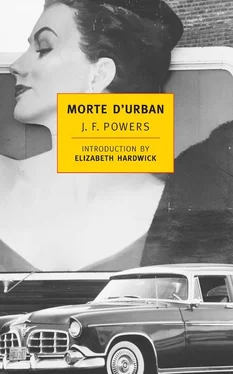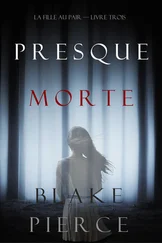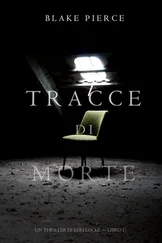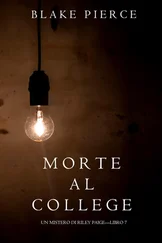RECTOR: Quomodo?
How?
FR URBAN: Per laborem humilitatis, per affectum compassionis, per excessum contemplationis. In primo veritas reperitur severa; in secundo pia; in tertio, pura. Ad primum ratio ducit. Ad secundum affectus perducit. Ad tertium puritas rapit .
By the toil of humility, by the emotion of compassion, by the ecstasy of contemplation. In the first, truth is found harsh, in the second, loving, in the third, pure. Reason leads us to the first, Love brings us to the second, Purity carries us up to the third.
RECTOR: Domine, abscondisti haec a sapientibus, et revelasti ea nobis .
O, Lord, you have hid these things from the sapient and revealed them to us.
FR URBAN: Amen .
Verily.
RECTOR: Num remanet ullum spei refugium, ubi oratio non invenit locum?
Is there any safe harbor for hope where prayer finds no place?
FR URBAN: Non remanet. Et si contigerit (quod Deus avertat) aliquem de nostris fratribus, non in corpore, sed in anima mori; quamdiu adhuc inter nos erit, pulsabo et ego meis qualiscumque peccator, pulsabo et fratrum precibus Salvatorem .
No, and if it should happen (which God forbid) that any of our brethren should die, not in body, but in soul, so long as he is still among us I will besiege the Saviour, both with my own prayers, whatever a sinner can avail, and with those of the brethren.
RECTOR: Visne, pro Dei amore omni obedientia te subjicere superioribus tuis?
And will you, for the love of God, with all obedience, submit yourself to your superiors?
FR URBAN: Volo .
I will.
RECTOR: Deinde ego, Wilfridus, voluntate Dei (in quantum cognosci potest a nobis) et voluntate fratrum tuorum constituo te Provincialem Ordinis S. Clementis, Provinciae Chicagiensis .
Then I, Wilfrid, declare you, Urban, by the will of God (so far as we can know it) and by the will of your brethren, Provincial of the Order of St Clement of the Province of Chicago.
FR URBAN: Amen .
So be it.
[1] The Rule of St Clement and the Rites of the Order .
[2] From this point on the Rector and Father Urban spoke Latin.
SO, LATE IN November, Father Urban returned to the Novitiate as Father Provincial, and discovered what was expected of him there.
Early in October, the Clementines had learned that the building they occupied on the near North Side was up for sale, and that their lease would not be renewed. This, it seemed, had been a big issue in the election, and had had a lot to do with the outcome. Before the new Provincial arrived on the scene, men said, “Wait’ll he gets here.” After he got there, they said, “What’s he doing?” Early in December, when the day came to move out (many had doubted that this day would ever come), the Clementines moved out, and not to another location (many had predicted a return to the Loop), but out to the Novitiate. When, later that month, it was rumored that the building hadn’t been sold, and that another religious order had been offered the space formerly occupied by the Clementines, men said, “How come?”
Father Louis spoke to the new Provincial about the matter, and spoke as an old friend, pulling no punches, but got no satisfaction, as he told others later, and then, entirely on his own, went to see the owner of the building. After a long evening in town, he returned to the Novitiate none the wiser, empty-handed, and stoned. “What’s happened to us wouldn’t happen to a first-class outfit, or even to a second-class one,” he told the dormitory of first-year men in his charge (most of whom, fortunately, slept on, exhausted as they were by pillow fights), and the next morning he failed to meet his classes in phy ed and moral.
The same day, Father Siegfried called upon a friend of his in the other Order about another matter, and discovered that the Dalmatians — for it was they who were being offered the location — had turned down the proposition: only the owner of the building and Father Gabriel had been sanguine enough to believe that such a thing could get past the Chancery, and he , by the way, was being given a well-deserved rest in the country.
Back in November, the Clementines had learned that the radio station on which their weekly program had been heard for so many years no longer wanted them, since it was increasing its coverage of news and music — news on the half hour instead of the hour, the Top 88 Tunes instead of the Top 42. Late in January, after the program had been off the air for a month, the new Provincial came forward with a proposal: fifteen minutes on a smaller station, “Father Clem Answers Your Question” to occupy the time slot between “Civil Service News” and the “Transylvanian Hour,” which had already moved from the larger station and gone from a half hour to fifteen minutes. The proposal was received in silence, and voted down. The new Provincial didn’t seem to care. Father Siegfried said that they might do well to educate some young men in the field of television, and was praised on all sides for his foresight, but the new Provincial only said, “We’ll see.”
Men were no longer asking, “What’s he doing?” but “What’s he done?”
Seldom had a new Provincial so badly disappointed the hopes and calculations of men. Many changes in personnel had been expected, but there had been few, and strangely, the men regarded as most likely to be affected, as almost certain to get the boot, were spared. Father Wilfrid was still in charge at St Clement’s Hill. Brother Henry, formerly Father Boniface’s secretary, was now secretary to the new Provincial. And Father Boniface himself, whom many had thought destined for Texas or New Mexico, was still at the Novitiate — teaching Father Louis’s courses. Father Louis was back at the Hill, a two-time loser, and Father John, who was reported to be writing the life of St Adalbert in his spare moments, was back on the road. These were the only major changes, and they made men wonder.
The biggest change was in the physical appearance of the Novitiate. Ceratocystis had reached into the tribe of elm trees on the grounds, and by order of the new Provincial the infected members were cut down. For this he was roundly blamed. What men did not know, and what he did not tell them, was that the slaughter should have been carried out immediately after the examination, which had taken place during the previous spring. Father Boniface, that hard man, had been too soft to order the job done while the trees were in leaf, it seemed, and later had feared the effect it might have on his chances for a second term. And so, besides their prestige address on the near North Side, and their radio program, the Clementines had lost the Avenue of Elms. These were the things that came to mind when men thought of the new Provincial.
About these things, and others, he had little to say, but reading the speeches of Winston Churchill, and coming to “I have not become the King’s first minister in order to preside over the liquidation of the British Empire,” he thought, “No, nor did Mr (as he was then) Attlee consider himself so called, but such was his fate.”
By March, “What’s he done?” had become “He’s not well.”
This was true. His head was worse. Standing on it hadn’t helped him either. His severest attacks now came in pairs, the first one lasting about a minute and a half, the second one about a minute, with an interval of perhaps forty seconds between them. They arrived and departed like sections of the Twentieth Century Limited — three or four times on some days, a dozen on others — and left him with a dazed and run-over feeling. When somebody was in the office, and he felt the first section coming down the tracks, he swiveled around in his chair, saying, “I’ll be with you in a minute, Father,” and opened his breviary, and closed his eyes, and waited until both sections had come and gone. Thus he tried to disguise his condition from others, and thus, without wishing to, he gained a reputation for piety he hadn’t had before, which, however, was not entirely unwarranted now.
Читать дальше











